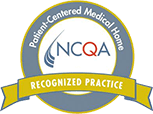Preventing Relapse During the Pandemic
Marilyn Walker, LPC, CAADC
Behavioral Health Therapist – Community First Health Centers
Many people in recovery from substance use disorders (addiction) are at a high risk for relapse because of the effects of chronic use has on the structure and function of the brain occurring long before any period of sobriety or abstinence. Many experts in the field of Addiction coined it “a brain disease.” It is important to understand that relapse is common and occurs in the mind first, often weeks before a person returns to substance use. Certain thoughts, feelings, and situations may trigger cravings and urges which increases the chance for relapse if they are ignored or not properly addressed. This poses a huge challenge for sustaining long-term sobriety and abstinence from drug use. Melemis (2015) identified relapse in a series of stages.
- Stage 1: Emotional Relapse begins weeks before a person resumes substance use. A person fails to cope with emotions in a healthy manner, such as denial or minimizing problems and detachment from emotions.
- Stage 2: Mental Relapse occurs when cravings have become intense, even though a person may want to remain substance free. Thoughts of using or drug seeking behavior is kept in secrecy.
- Stage 3: Physical Relapse is the action stage. A person has returned to active substance use. One drink or use of a substance can easily take a person down a dark path to a full relapse.
Traditional 12 Steps AA, NA meetings, counseling, sponsorship, and support systems have been a lifeline and vital tools for a Relapse Prevention Plan.
Then the pandemic (COVID-19) came upon us, posing a significant challenge for people in recovery. Mitigation strategies to control the pandemic began immediately, including social distancing. Social distancing led to social isolation for many in recovery. Isolation is a familiar place that 12 Steps, AA and NA meetings, peer and family support, and sponsorships offered a way out of. “We have individuals who are already vulnerable for engaging in alcohol use and social isolation is exacerbating that,” says George F. Koob, director of the National Institute on Alcohol Abuse and Alcoholism (NIAAA).
Financial and emotional challenges as a result of the pandemic can increase stress, triggering anxiety or depression which may lead to substance use as a coping mechanism. A return to substance use may become deadly for those individuals with significant periods of sobriety or abstinence from drug use. The National Public Health Group Wellbeing Trust (WBT, 2020) predicts the pandemic may contribute to as many as 75,000 deaths related to alcohol and other drug abuse in the U.S. This prediction is startling. It is important to emphasize that no one has to suffer in silence or lose their life prematurely. If your sobriety is being challenged or you know someone who is struggling to sustain sobriety during the pandemic, help is available.
Alternative 12 Steps AA and NA meetings and other recovery groups are offered online, accessible through Zoom. Also, telehealth services are available. for those individuals who do not have access to online support meetings or not comfortable using an online format, the following strategies are helpful in relapse prevention:
- Identify three (3) healthy, supportive people to contact regularly via phone or text.
- Follow a daily schedule of productive activities. Idle time often leads to boredom, increasing a chance for relapse. Remember to plan your day.
- Eat nutritious meals. Being homebound due to social distancing, salty and sweet snacks can become more appealing. This is an ideal time to try out new healthy recipes, your body will thank you.
- Engage in a hobby such as writing (journaling or poetry), reading, or gardening. The mind needs to be stimulated with new interests for continued growth.
- Begin an exercise regime (walking or biking) and practice relaxation techniques which will help manage anxiety and depression intensified by stress from the pandemic.
- Make time for daily reflection, check thoughts and feelings. Negative thoughts and feelings can lead to negative behavior. An emotion journal will be helpful in tracking your emotions.
- Create a vision board for your life beyond the pandemic and set goals. If you can visualize where you want to go you will probably get there.
- Maintain a positive mindset. Practice an attitude of gratitude. familiar slogans such as “one day at a time,” let go and let God,” and “this too shall pass,” will give hope for the negative impact from the pandemic increasing your chances of preventing a relapse.
It is important that people in recovery become relentless in utilizing online resources and other recovery strategies and not allow the effects of the pandemic to become excuses to let their guard down and return to substance use. Focus on what you can do versus what you can’t do. Remember, THIS TOO SHALL PASS. The pandemic is upon us and there is no going back, we have to move forward in the “new normal.”
Resources:
National Institute on Alcohol Abuse and Alcoholism
Alcohol Addiction Hotline (Michigan): 866-520-2708
National Drug Helpline: 844-289-0879
Book Resource: Eating for Recovery by Molly Siple, MS, RD
Book Resource: Eat to Live by Joel Fuhrman, MD
Relaxation Techniques: Help Guides Relaxation Techniques for Stress Relief PDF
Vision Board Ideas: Develop Good Habits Website (Vision Boards)
References
Melemis, S. (2015, Sep 3). Relapse Prevention. Five Rules of Recovery
Koob, George F. (2020, May 8). NIAAA
National Health Group Wellbeing Trust (WBT) (2020, May 15)
Marilyn Walker, LPC, CAADC, is a behavioral health therapist with Community First Health Centers. To schedule an appointment with Marilyn, or any of our counselors, please call 586-749-5197 ext. 213. Community First Health Centers offers behavioral health counseling via telehealth services or in person at our medical centers located in Algonac, Port Huron, and New Haven.


